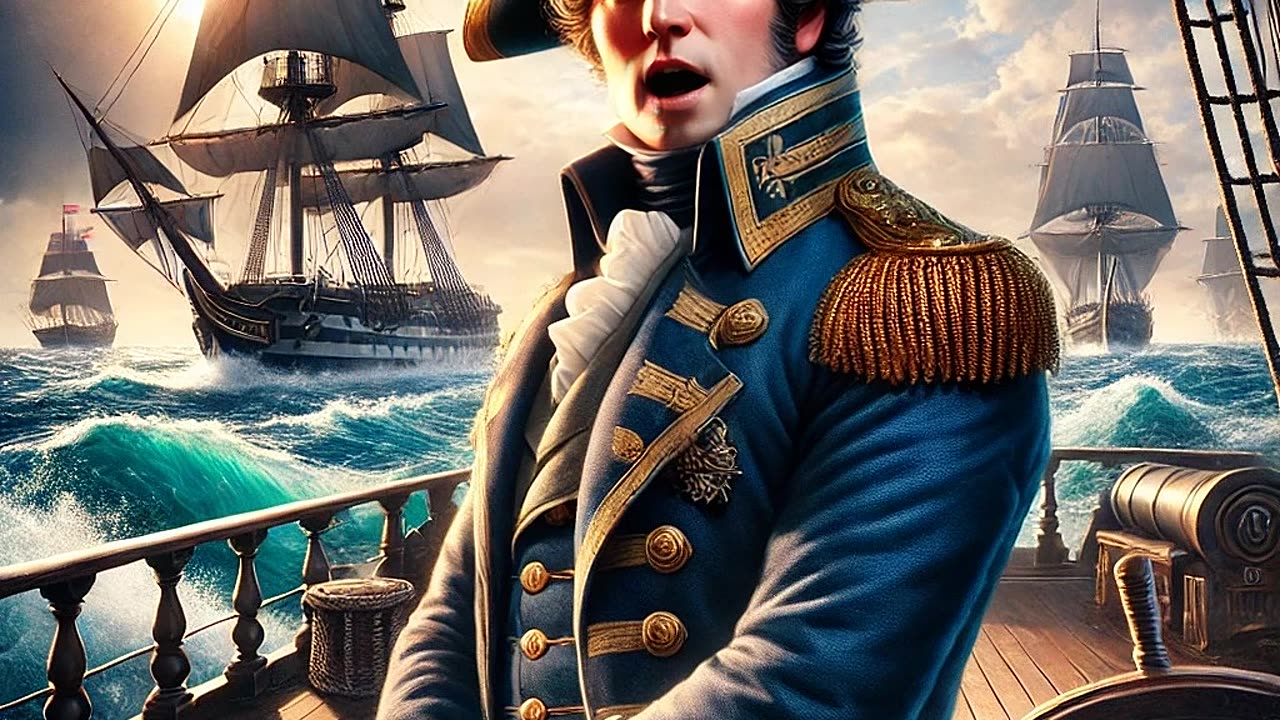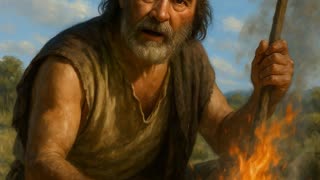Premium Only Content

Admiral Edward Boscawen Tell His Story Taking Over the French Fortification of Louisbour
Presented to you by: http://www.HistoricalConquest.com
Read more on our blog at: https://www.historicalconquest.com/blog
I am Admiral Edward Boscawen, and my life has been one of adventure, loyalty, and service to the British Crown. Born in 1711 into a naval family—my father was Hugh Boscawen, 1st Viscount Falmouth—it was clear from a young age that I would follow the sea. At just 12 years old, I joined the Royal Navy, and from that moment, the ocean became my battlefield, my home, and the place where I would build my legacy.
Throughout my career, I was known for my fierce determination and unyielding courage in the face of adversity. One of my earliest and proudest moments came during the War of the Austrian Succession. In 1747, I served under Admiral Anson and played a crucial role in the Battle of Cape Finisterre, where we captured a French convoy carrying treasure. This victory not only weakened our enemies but also cemented my reputation as a bold and capable officer.
But it was during the Seven Years' War that my name became truly feared and respected, especially by the French. In 1755, I was given command of a squadron with orders to intercept a French fleet heading to North America. Off the coast of Newfoundland, I captured two French ships, an act that escalated tensions between our two nations. This success earned me the nickname "Old Dreadnought," a testament to my relentless spirit and unwillingness to back down from a fight.
In 1758, I led a daring assault on the fortress of Louisbourg in Nova Scotia, a key strategic point for the French. The siege was intense, with our ships bombarding the fortress from the sea while the army attacked from land. After weeks of brutal fighting, the French were forced to surrender, and Louisbourg fell into British hands. This victory was pivotal in the war, giving Britain control over the entrance to the St. Lawrence River and paving the way for the eventual conquest of Quebec.
One of my final and perhaps most significant contributions came in 1759, during the Battle of Lagos. Commanding a fleet in the Mediterranean, I pursued and defeated a French fleet attempting to link up with another force to invade Britain. This victory was part of what became known as the "Annus Mirabilis," or the Year of Miracles, where Britain won decisive victories across the globe, securing its dominance at sea.
Despite my success in battle, my health began to fail, and in 1761, I succumbed to illness and passed away. But I left behind a legacy of bravery, tenacity, and an unwavering commitment to my country. I like to think that my actions helped to shape the course of history and secured Britain’s place as the world’s foremost naval power.
So, students, as you learn about the great wars and battles of the past, remember the men who, like me, dedicated their lives to the service of their country, often at great personal cost. The sea may be a harsh mistress, but it is there that I found my purpose, my honor, and my legacy.
Visit us at: https://www.historicalconquest.com/marketplace
Helping Build Futures,
Zack Edwards
President and Creator of Historical Conquest
Website: http://www.HistoricalConquest.com
Facebook: https://www.facebook.com/HistoricalConquest/
YouTube: https://www.youtube.com/channel/UCwMESbGwG5OqQrjoq6pCSpQ
Twitter: https://twitter.com/Histcon
Instagram: https://www.instagram.com/historicalconquest/
#historicalconquest #history #historical #ancientamerica #ageofexploration #france #french #iroquois #native #nativeamerican #nativeamericanhistory #british #england #religiouspersecution #expansion #truehistory #settlers #settlement #spain #france #French #Frenchhistory #frenchcolonial #frenchheritage #colonizers #colonizer #FrenchandIndianWar #RevolutionaryWar #AmericanRevolution
-
 0:59
0:59
The Historical Conquest Channel
19 days agoNilo, the First Stewart, Tells About How Precious Fire Was to those Back in Very Ancient Times
6 -
 2:03:01
2:03:01
MG Show
18 hours agoBiden Auto Pen Scandal; President Trump White House Religious Liberty Commission
7.27K12 -
 14:18
14:18
Actual Justice Warrior
3 days agoBody Camera Video DESTROYS BLM Hoax
2.13K14 -
 21:17
21:17
itsSeanDaniel
1 day agoCNN Host's Vaccine Lies BACKFIRE in Front of MAGA Doctor
2.76K8 -
 1:00:48
1:00:48
Dialogue works
23 hours ago $0.84 earnedMark Sleboda: Putin DROPS a Bombshell on Trump… as China & India Shake the World!
13.3K4 -
 8:03
8:03
MattMorseTV
16 hours ago $7.39 earnedTrump just GAVE THE ORDER.
52.2K40 -
 11:23
11:23
Nikko Ortiz
15 hours agoArmy Tik Tok Fails Go Hard
7.78K1 -
 2:04:38
2:04:38
Side Scrollers Podcast
19 hours agoEveryone HATES Baseball Karen + Gaming’s Newest Virtue Signal + MORE | Side Scrollers Live
31.8K7 -
 1:13:08
1:13:08
The HotSeat
15 hours agoWhen Local Authorities Won’t Act, the Feds Will
10.8K16 -
 15:13
15:13
The Pascal Show
11 hours ago $1.09 earnedHE LIED?! Trump In Hot Water After Lewd Epstein Birthday Card Released By Oversight Committee
11.4K27